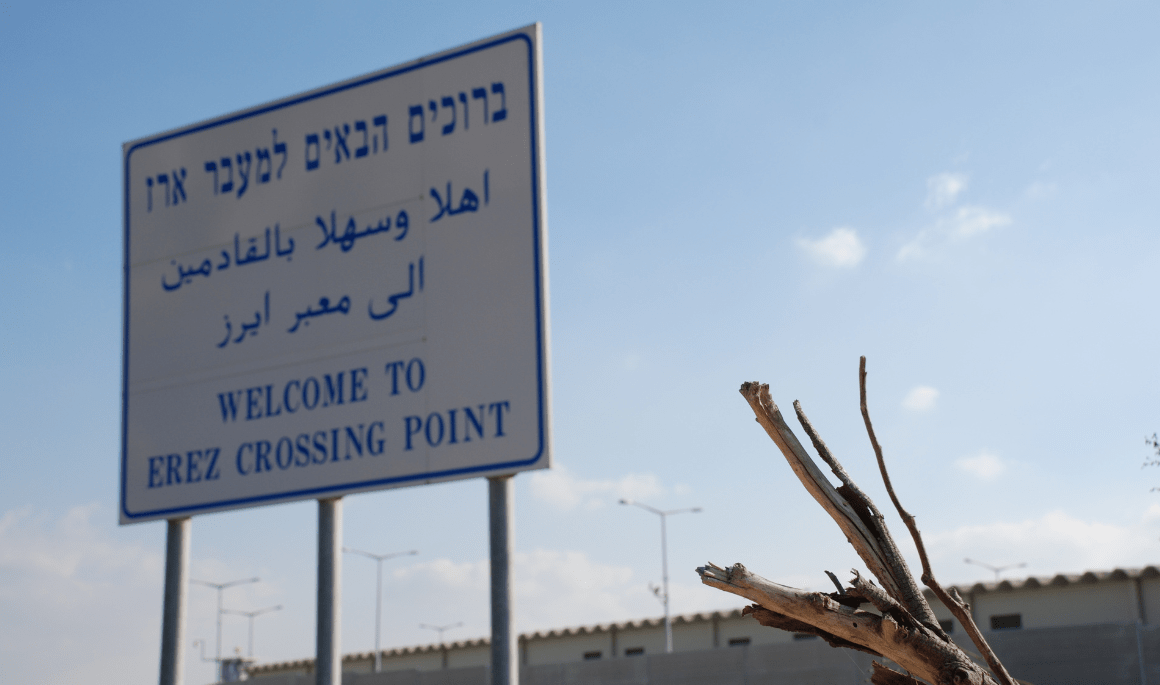- Norwich Blogs
- Blogs
- Iran, Israel, and Hamas Conflict
Iran, Israel, and Hamas Conflict
By Saeid Golkar
Disclaimer: These opinion pieces represent the authors’ personal views, and do not necessarily reflect the official policies or positions of Norwich University or PAWC.

On Saturday, October 7th, the Islamist terrorist group Hamas launched the largest assault on Israel in years, firing a barrage of rockets from Gaza, sending foot soldiers across the border, and taking hostages. Immediately after that, the Islamic Republic celebrated the Hamas invasion and praised it as revenge against Zionists and the illegitimate state (Israel). The Islamic Republic endorsed the Hamas attack on Israel.
This attack on Israel has been unprecedented in size, scale, and impact, suggesting foreign support. The intelligence and weapons used in the attack are too advanced to have been produced in Gaza.
From an Islamic republic point of view, Hamas's terrorist attack on Israel was welcomed for three main reasons: first, undermining Israel as an illegitimate state, mobilizing Muslims around the philistine flag, and, more importantly, deterring Saudi Arabia-Israeli normalization was being discussed, by the leaderships of both countries. Hamas and the Islamic Republic both shared all these objectives.
Denying responsibility for the attack, the Islamic Republic military and political elites warned Israel Not to put the boot on the ground in Gaza; otherwise, the conflict would be spread throughout the region, and Muslims would enter the war in support of Hamas and Palestinian Islamic Jihad. On Tuesday, October 17th, Iran's Supreme Leader, Ayatollah Ali Khamenei, said, "We must respond; we must react to what is happening in Gaza," following similar ominous comments from Iran's foreign minister.
Despite all threats and drawing deadlines, the Islamic Republic did nothing, even when the Israeli military invaded Gaza in retaliation to destroy Hamas. The theocratic regime's support has been limited to more propaganda showing Israel's atrocities and empty words, not actual support. In addition to that, Ayatollah Khamenei later softened his position, claiming that the Islamic regime didn't want to throw the Jews into the sea (the slogans that many IRGC commanders repeated for years). Still, he tried to solve the Palestinian question by a referendum, in which "original Palestinians—those who lived in Palestine over 100 years ago will be polled."
The Islamic Republic's position and empty support of Hamas have puzzled many in the West and disappointed Muslims who believed in Iran's support for Palestinians' security concerns. Its proxy, Hezbollah, would be in direct conflict with Israel despite Israel's ground operation in Gaza.
To understand why the Islamic Republic didn't escalate the situation and didn't get involved in direct conflict with Israel, one must consider these reasons: first and foremost, the position of Hamas in Iran's security and military doctrine.
Unlike Lebanon's Hezbollah, which can be labeled as Iran's proxy group (although Hezbollah is an agency in Lebanon's domestic politics), on the other hand, Hamas is a grassroots militia that shares interests with Iran but was not initially created as a proxy for the country. Iran supports these groups, but their relationships are based on a transactional exchange of weapons, training, and logistical support in return for tactical advantage. Iran does not exercise direct command or control over the strategic decisions of these groups.
Historically, the Islamic Republic of Iran has supported Hamas ideologically, logistically, financially, and militarily since its creation in 1986. The Islamic Republic supports Hamas for geostrategic and ideological reasons: to propagate Islamist extremism in the region, fuel instability, and destroy the Jewish state of Israel.
However, relations between the Islamic Republic and Hamas have been volatile. There are many similarities between Iranian Shia Islamists and Hamas, a Sunni Islamist group modeled based on the Muslim Brotherhood. Both look for the implementation of Islamic Sharia and want to create an Islamic state, and both are anti-Semitic. However, Hamas is closer to Sunni Islamists in Egypt, Turkey, and Qatar and didn't accept the Islamic Republic's claim on the leadership of the Muslim world.
Hamas's connection to Sunni Islamists caused tensions between Hamas and the Islamic Republic during the Syrian Civil War 2011, where Hamas refused to fight along with Bashar al-Assad against the Syrian opposition, most of whom belonging to the Syrian Muslim Brotherhood, causing them to back opposing sides.
The Hamas and the Islamic Republic relationship has since been repaired; once again, Iran resumed providing technology, training, funding, and weapons to Hamas, who have publicly acknowledged and thanked Iranian Islamists for their support.
More importantly, Israel's strong reaction and the West's strong support of Israel are causing the Islamic Republic to hesitate from escalating the situation. The Biden administration has repeatedly warned Iran not to attempt to widen the conflict in the Middle East. They have deployed several aircraft carriers to the Persian Gulf and Mediterranean Sea to send a strong signal to the clergy and their Praetorian Guard IRGC, informing them that the US and the West will retaliate if Tehran tries to escalate the situation.
As an illegitimate regime without a solid social constituency, the clergy knows how their regime is vulnerable; any regional conflict or war can easily trigger mass protests again and overthrow the clerical regime. As the Islamic Republic shifted from a populist egalitarian regime to an oligarchy with a repressive system, Iran has experienced several protests since the early 1990s. The last wave of protest, which was triggered by the death of an Iranian girl under police custody in September 2022, took months and shook the foundation of the social republic. The regime's brutality in repressing people, killing, blinding, arresting, and torturing thousands of Iranian youths, has eroded any strain of legitimacy. In recent years, the personalization of power and dumbification of the state has led to the accumulation of economic and societal problems that challenge the regime's survival.
In this situation, the Islamic Republic will not even enter the war with Israel, even if Hezbollah does. For example, in 2006, Israel attacked Hezbollah, causing Hezbollah to take two IDF soldiers hostage. During the war, Iran supported Hezbollah financially, logistically, and intelligibly but did not enter the war directly.
The Islamic Republic's reluctance to escalate the war should not be seen as a sign of the regime's pragmatism and rationality. It is merely a survival instinct and self-preservation tactic. Once the threat is no longer present, the regime will revert to its usual pattern of behavior, which undermines the stability of the Middle East.
About the Author
Saeid Golkar is the UC Foundation Associate Professor in the Department of Political Science at the University of Tennessee at Chattanooga and a non-resident Senior Fellow on Middle East Policy at The Tony Blair Institute for Global Change in the UK and the Chicago Council on Global Affairs.



